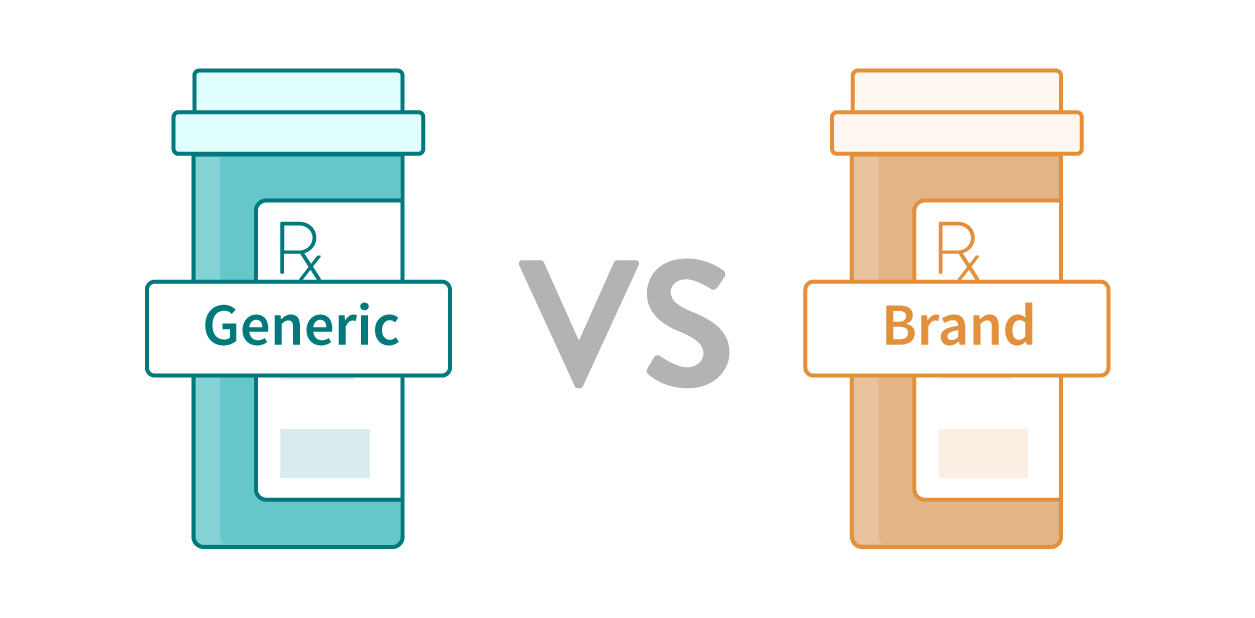As the cost of branded medications continues to skyrocket, generic alternatives play an ever-increasing role in helping to keep Americans healthy. It’s rare to turn on the TV without being bombarded with countless advertisements for well known brand medications like Xarelto, Crestor, Lyrica, Eliquis, and dozens of others. While many of these new brand name medications do in fact represent important advances in research and in treatment options, most of them also carry a huge price tag that can make the medication unaffordable for patients who don’t have an insurance plan that covers them. Furthermore, some of these medications are closely related to their generic ancestor, having been only slightly altered in ways that don’t measurably improve efficacy. Though similar, these medicines allow manufacturers to sell as a brand under a new patent.
Thankfully, there are plenty of effective generic medications available for doctors to prescribe that are far more affordable. In fact, the vast majority of drugs taken by patients are generic. The FDA estimates that nearly 80% of all medications filled in the United States are generic medications, saving Americans over $150 billion (yep, that’s billion with a B) every year. RefillWise users can save even more on top of that, in addition to earning you cash rewards.

Are generics really just as good as the brand name versions?
The scientific answer is yes, although you may want to take that response with a grain of salt as the context surrounding the question can get complicated.
Every single generic medication that makes its way to the pharmacy must undergo an FDA approval process that is just as thorough as it would be for any branded medication, including extensive testing and patient studies. A generic is only approved after the FDA confirms that the medication: a) is just as effective, b) is just as safe, and c) contains the exact active ingredients as the brand name medication.
Despite these safety measures, there are still some patients who insist that the generic versions of medications simply don’t work. Their claims may well be legitimate in many cases, and their adverse reactions or negative experiences very real. However, there is little to no scientific evidence generally showing that the generic medications themselves cause these issues.
Interestingly enough, the results from one study by the University of Cincinnati seem to indicate that how we perceive a medication may actually affect how well it works. To make the matter even more complicated, another study from Brigham and Women’s Hospital / Harvard Medical School resulted in evidence suggesting that simply changing the appearance of a pill can affect patient adherence, which is a crucial part of nearly any medication’s chance of success.
So if a generic doesn’t work for me, it’s all in my head?
This isn’t necessarily true either. There is an incredible amount of variation in the biology and psychology that make up each one of us. Any one of those infinite variations could end up playing a part in how your body reacts to a drug. With that being said, those variations in how a drug works exist for both branded and generic medications, regardless of whether it happens to be under patent or not.
But I thought you said generics were just as good as brand name medications?
Think of it this way. Yes, some patients report a loss of efficacy and/or an increase in side effects when switching to a generic from a brand medication — at the same time, there are also many patients who report the exact same experiences when switching from a generic to a brand, or even when taking a the same brand medication that was manufactured at a different location.
At the end of the day, it may in fact be that a certain generic medication isn’t the right treatment for you. If that is the case, however, it isn’t necessarily because the medication is generic. With the ever-increasing cost of branded medications, you could be overpaying hundreds of dollars for a branded medication when there may be viable generic alternatives that are just as effective. Always be sure to consult your prescribing physician about your options, and always be sure to show your pharmacist your free RefillWise card to save an average of 40% on each trip to the pharmacy while earning cash back.



 Back to blog home
Back to blog home